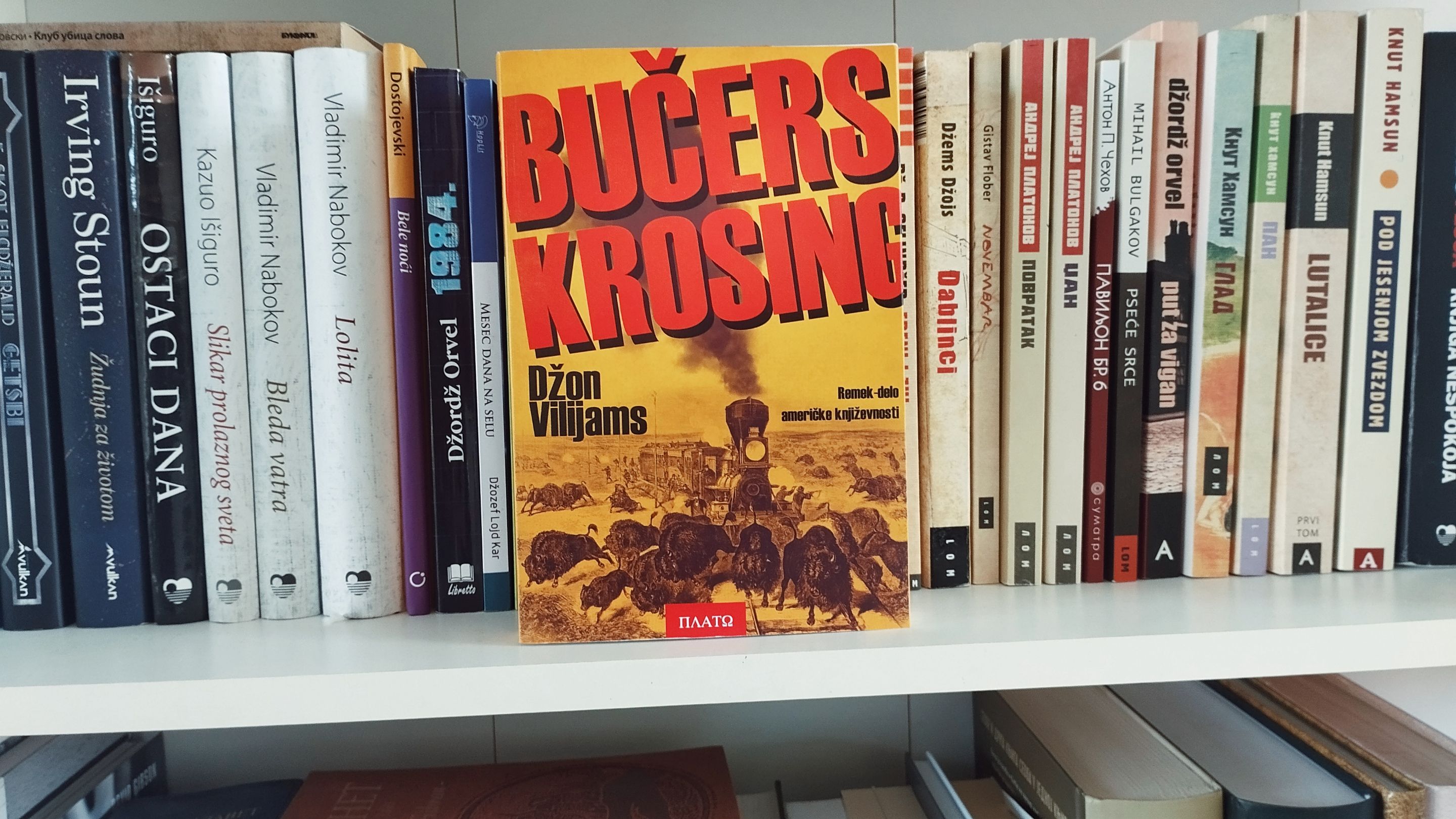The craftsmanship with which John Williams writes prose should be a subject taught in schools. His words flow effortlessly, as if they had always existed in that exact order, as if this was the only possible way for the story to be told. Every word and sentence, every tense action sequence set against descriptions of nature or moments of deep introspection — all of it lands precisely where it should. The result is that the pages seem to turn on their own, and before you know it, you’ve been quietly hypnotized by the flow of the narrative.

Stoner - author's other and more famous book - amazed me last year with its subtle brilliance in developing a character and fate of the protagonist. Butcher’s Crossing, as its predecessor, captivates in a similar way — although the subject matter is entirely different. Here, instead of the quiet halls of academia, we’re thrown into the brutal clash between man and the untamed American West — and into the depths of a soul in search of meaning and expression.
This is a brutal Western-like tale, following four hunters crossing dusty prairies and rugged Colorado mountains in search of a large herd of buffalo. What appears to be a simple premise slowly unfolds into a journey marked by their struggle against nature, the animals, their own failing bodies, personal tensions, and, ultimately, conscience. It’s built from vivid and often harrowing detail, pulling us into a doomed attempt to conquer something that was never meant to be conquered — the wilderness itself.
Through the four main figures — the idealistic, naive Will Andrews, a Harvard dropout searching for meaning; the obsessive, hardened hunter Miller, driven blindly by the need to kill and prove himself; the half-mad, one-armed, religious Charley Hoge, alternating between whiskey and his worn out bible; and the resentful, ironic Schneider, torn between survival instincts and growing despair — the novel portrays the ways in which nature’s force is mirrored within each of these characters.
“It came to him that he had turned away from the buffalo not because of a womanish nausea at blood and stench and spilling gut; it came to him that he had sickened and turned away because of his shock at seeing the buffalo, a few moments before proud and noble and full of the dignity of life, now stark and helpless, a length of inert meat, divested of itself, or his notion of its self, swinging grotesquely, mockingly, before him. … That self was murdered; and in that murder he had felt the destruction of something within him, and he had not been able to face it."
For those unprepared for human cruelty, madness, greed, or the violence inflicted upon animals — Butcher’s Crossing is read at your own risk. Williams, through extraordinary descriptions and a profound understanding of survival, nature’s laws, and the consequences of violating them, places us shoulder to shoulder with the characters. There is no place to hide. Before your eyes: the untouched, tormented wilderness. In your ears: gunfire, the rush of a stream, the thunder of hooves. In the air: the fresh scent of pine needles beneath your feet.
And more than anything — this novel reaches inward, into the human search for freedom, ideals, and authenticity, confronting us with the raw image of a brutal world in which many lose their way.
This book pulls you in and does not let go.
4.5/5